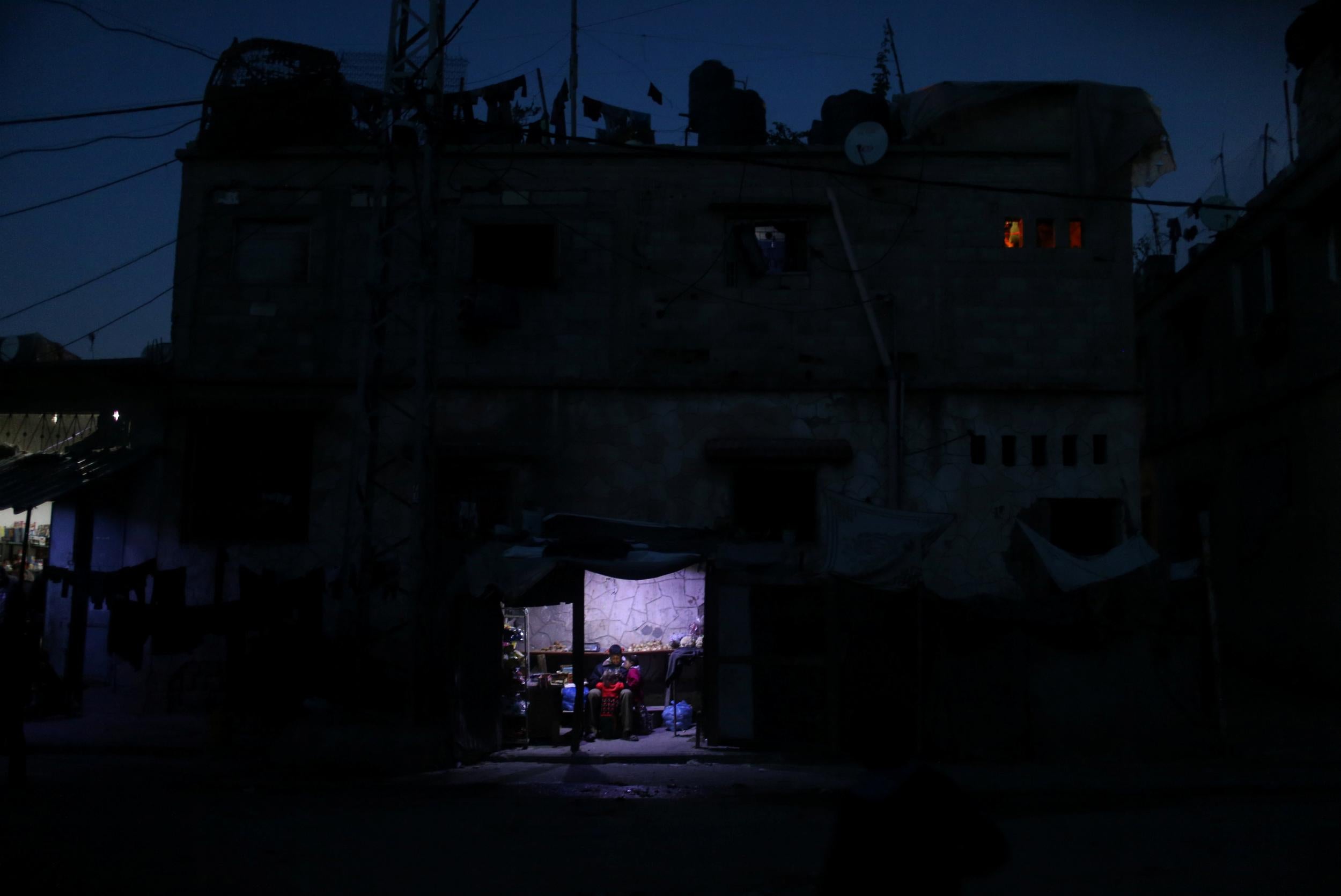Gaza’s electricity crisis will land on ‘Israel’s doorstep’, warns UN peace envoy
Coastal enclaves only power plant was shut down once again on Wednesday, leaving two million people with just three hours of electricity a day

Your support helps us to tell the story
From reproductive rights to climate change to Big Tech, The Independent is on the ground when the story is developing. Whether it's investigating the financials of Elon Musk's pro-Trump PAC or producing our latest documentary, 'The A Word', which shines a light on the American women fighting for reproductive rights, we know how important it is to parse out the facts from the messaging.
At such a critical moment in US history, we need reporters on the ground. Your donation allows us to keep sending journalists to speak to both sides of the story.
The Independent is trusted by Americans across the entire political spectrum. And unlike many other quality news outlets, we choose not to lock Americans out of our reporting and analysis with paywalls. We believe quality journalism should be available to everyone, paid for by those who can afford it.
Your support makes all the difference.One of the top UN officials in the Middle East has said that the Gaza Strip’s worsening electricity crisis is causing untold misery in the area, warning of blowback for Israelis.
“Of all the issues we deal with - the peace process, Palestinian institution building, the region - this is the one issue that keeps me up at night,” Nickolay Mladenov, the UN’s special coordinator for the Middle East Peace Process, told reporters on Wednesday.
“The effects of the crisis are devastating,” he said. “And all of this, at the end of the day, will come back to Israel’s doorstep.”
While Gaza has had to content with unreliable power since militant organisation Hamas seized control of the Strip in 2007, in recent months the issue has reached crisis levels.
The rival Palestinian Authority (PA), based in the West Bank, has been waging a long term effort to weaken Hamas. By hiking fuel delivery prices, it has gradually strangled Gaza’s access to electricity.
Hospitals in the Strip have warned that the frequent cuts endanger patients’ lives, and the rest of Gaza’s two million inhabitants’ daily lives and businesses are also severely affected.
Since the water supply to many households relies on electric pumps, many people are also having difficulty washing, cooking and doing laundry.
Israel was still covering around one third of Gaza’s power needs, but last month the flow was cut by 40 per cent at PA President Mahmoud Abbas’ request, the AP reported.
Hamas has been intermittently using Qatari and Turkish money to buy electricity from Egypt - but it has only kept the lights on for a few days at a time.
On Wednesday, the Strip’s only plant completely shut down again, leaving Gazans with just three hours of power a day.
The lack of electricity has caused the already inadequate sewage system to break down, dumping waste directly into the Mediterranean and leaving some residents without drinking water.
While Israel has no direct involvement in the electricity crisis - or solving it - the army’s sea blockade restricting the flow of goods and people in and out of the area has long contributed to Gaza’s woes.
A new UN report found that after a decade of Hamas rule the coastal enclave is “unlivable”. As well as the electricity crisis, incomes, healthcare and education standards continue to decline and unemployment has steadily risen. A total of 60 per cent of young people in Gaza are now without work.
The worsening conditions have already led to rare unauthorised protests against Hamas’ rule. Observers worry if the crisis deepens it could lead to renewed violence between the Strip and Israel.
Join our commenting forum
Join thought-provoking conversations, follow other Independent readers and see their replies
Comments